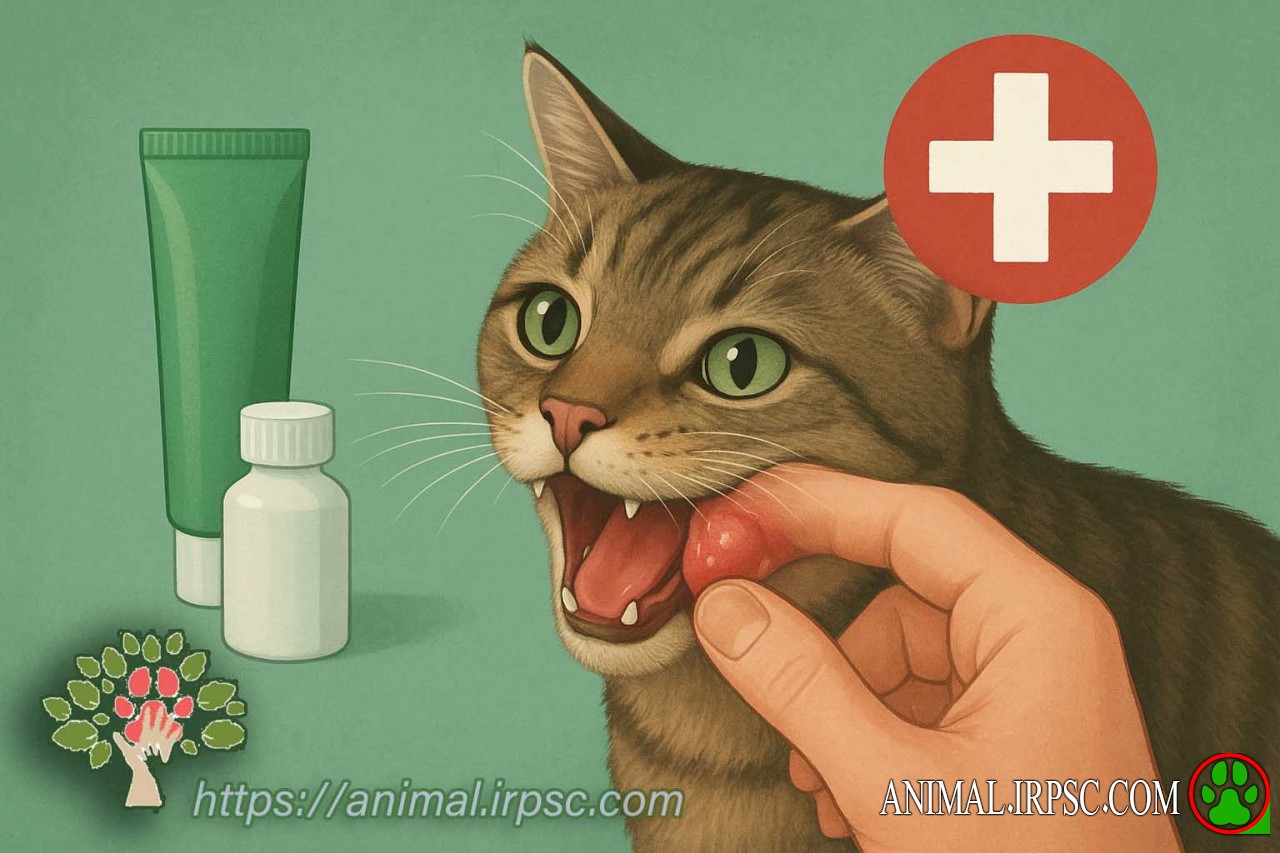Cat's mouth swelling
Introduction
As valued family members, domestic cats require ongoing medical care. Oral disease in cats is a common problem that can seriously impact their health and quality of life. Stomatitis, gingivitis, and other dental problems in cats can be caused by a variety of factors and, if not treated promptly, can lead to more complex problems. In this article, we will examine the causes, symptoms, and treatment of oral disease in cats and discuss the importance of using online veterinary care in emergencies.
Common Causes of Oral Disease in Cats
Oral disease in cats can be caused by a variety of factors. In this section, we will mention some of the most common causes of stomatitis and gingivitis in cats:
Viral and bacterial infections:
Viruses and bacteria can quickly cause infections in cats’ mouths. Diseases such as FIV (feline immunodeficiency virus) and FeLV (feline leukemia virus) can weaken a cat’s immune system, making it prone to oral infections.
Gingivitis and stomatitis:
Gingivitis is a common cause of mouth swelling. It is usually caused by a buildup of plaque or tartar on the gums.
Dental problems:
Tooth decay, dental abscesses, and dental problems in cats can cause severe swelling and pain in the mouth.
Tumors or cysts:
Sometimes, oral tumors can cause swelling and inflammation. These are less common, but can be serious if left untreated.
Allergies and allergic reactions:
Cats may react to certain foods or grooming products, which can cause inflammation and swelling in the mouth.
Possible causes of cat mouth ulcers:
Viral or bacterial infections (such as FIV, FeLV, calcivirus)
Dental disease (dental plaque, abscesses, cavities)
Gingivitis or stomatitis
Allergic reaction or sensitivity
Foreign object (such as a plant thorn or small bone stuck in the gums)
Tumors or cysts (less common but possible)
Signs and symptoms of oral disease in cats
Oral disease in cats is often accompanied by symptoms that should be recognized and treated by cat owners. Common symptoms include:
Swollen or inflamed gums
Bad breath, usually caused by infection or plaque buildup
Difficulty eating and drinking due to pain in the mouth
Dropping or bleeding gums
Unusual behaviors, such as lethargy or decreased activity
Treatments for oral diseases in cats
Treatment for oral diseases in cats depends on the cause of the condition. Here are some common treatments for oral problems in cats:
Home dental care:
Using a cat toothbrush and a pet-friendly toothpaste can help prevent plaque and tartar from building up on the teeth.
Antibiotics and anti-inflammatories:
If there is a bacterial infection, your veterinarian may prescribe antibiotics. Anti-inflammatories can also help reduce swelling and pain.
Dental Surgery:
In some severe cases, it may be necessary to extract damaged teeth or treat abscesses through surgery.
Nutritional Care:
Feeding your cat soft and lukewarm foods will help them eat more easily and prevent damage to their gums.
The Role of Online Veterinary Medicine in Emergencies
When a cat’s oral problems escalate quickly, online veterinary medicine can act as an effective support in emergencies. Online veterinarians can guide cat owners through consultation and symptom assessment, and prescribe appropriate medications if needed. This service is especially important in situations where access to a physical veterinarian is limited or during non-business hours.
Benefits of using online veterinary medicine in emergencies:
Quick access to medical advice:
Cat owners can quickly consult a veterinarian and use emergency recommendations for treatment.
Reduce stress for the animal:
Seeking an online veterinarian helps cats to receive treatment without having to travel long distances or be in stressful environments.
Save time and money:
Online veterinary medicine helps cat owners avoid unnecessary visits and reduce treatment costs.
Preventing oral diseases in cats
Prevention is always better than cure. To prevent oral diseases in cats, the following tips are useful:
Regular dental care:
Brushing cats' teeth and using special dental food can help prevent gum disease and tooth decay.
Regular oral examination:
You should check your cat's mouth every now and then to make sure that its teeth and gums are healthy.
Proper nutrition:
A proper diet and healthy nutrition help keep your cat's teeth and mouth healthy.
Conclusion
Treating cat oral diseases requires careful attention and care. Cat owners should recognize the symptoms of oral diseases and, if necessary, use online veterinary services so that they can treat them in emergencies. With regular care and online consultations, you can maintain your cat's oral health and prevent serious problems.

